
Breadcrumbs navigation
The best books on promoting the rule of law
This article was originally published by Shepherd, a book discovery website where authors and experts share their favourite books. We recently embarked on a partnership with Shepherd to showcase our members' books, so we're pleased to share this first article. Look out for further articles by BISA members in the coming weeks. Try their bookshelf on international relations or politics to browse a wide range of recommended books.
Why am I passionate about this?
Originally from Havre, Montana, I’m now a Reader in International Politics at the City University of London and a Senior Visiting Fellow in the Department of International Relations at the London School of Economics. I’ve long been fascinated by how legal orders are created, contested, and transformed across time and space. Before becoming an academic, I worked as an international development professional in several countries, including Afghanistan, Nepal, and Timor-Leste. I earned a PhD in International Relations from Oxford University, a Juris Doctorate from Stanford Law School, an MA in Comparative Ethnic Conflict from Queen’s University Belfast as a Mitchell Scholar, and a BA from Grinnell College.
I wrote...
Contending Orders: Legal Pluralism and the Rule of Law
By Geoffrey Swenson
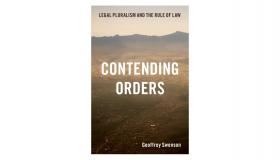
What is my book about?
Worldwide, most legal disputes are handled by justice systems rooted in custom or tradition. Legal pluralism, where state courts and non-state authorities exist alongside each other, is the norm, not the exception. So, how does legal pluralism impact efforts to establish the rule of law? What’s the best way to navigate such settings?
My book shows that engagement with non-state justice systems is vital to the success or failure of efforts to establish the rule of law. Drawing on extensive fieldwork, first-hand policy reports, and case studies from Afghanistan and Timor-Leste, the book offers theoretical and practical insights to better understand and approach advancing democracy and the rule of law wherever legal pluralism thrives.
The books I picked & why
On the Rule of Law: History, Politics, Theory
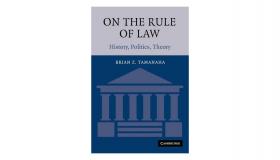
Why did I love this book?
Short and accessible, this is a book that I consistently return to when considering how the rule of law has been understood in different places and times from Ancient Greece through the Medieval World to today.
In my view, there simply isn’t a better starting point for understanding what the rule of law means and why it is so contested. At the same time, Tamanaha shows why the rule of law remains both a useful concept and an ideal worth aspiring to. I would recommend this book to anyone seeking to understand the rule of law and its complexities.
Aiding Democracy Abroad: the Learning Curve
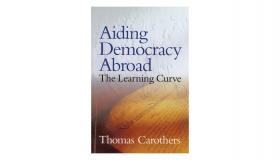
Why did I love this book?
My first job after university was as a junior fellow at the Carnegie Endowment for International Peace, where I worked on the Democracy and Rule of Law Project, headed by Tom Carothers. It was there that I first read Promoting Democracy Abroad.
Over two decades later, I still find myself returning to this book for its insightful and systematic assessment of the opportunities and challenges facing international actors who seek to promote the rule of law and democracy.
Can Might Make Rights?: Building the Rule of Law after Military Interventions
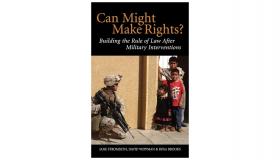
Why did I love this book?
Few places face a more dire need for the rule of law than states prone to conflict. These are almost invariably some of the trickiest places to actually promote the rule of law. At the same time, post-conflict states offer opportunities rarely found in more stable political environments.
I first reviewed this book for the Stanford Journal of International Law back in 2007, and it has consistently repaid rereading ever since. It shows the good, the bad, and the ugly about international attempts to promote the rule of law after conflict. It is a great book for anyone who wants to understand what has been done in the past, why efforts so often disappoint, and how future activities might be improved.
Customary Justice and the Rule of Law in War-Torn Societies
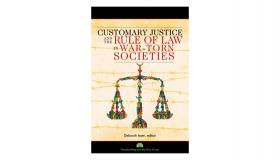
Why did I love this book?
This book helped spark my own interest in the relationship between legal pluralism and the rule of law. Despite decades of transnational legal support for the rule of law, scholars and practitioners alike have overwhelmingly focused on state courts. Isser’s edited volume is an early and enduring corrective to that trend.
This highly accessible book offers an invaluable primer for understanding a wide range of customary legal systems, how external actors have approached these authorities, and how non-state justice can influence the development of the rule of law.
Measuring Peace: Principles, Practices, and Politics
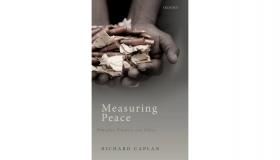
Why did I love this book?
The rule of law often equates with peace at home and peaceful relations abroad. Yet, as Caplan shows, peace–and determining when we can confidently say peace prevails–is far from obvious. Measuring Peace clarifies the pitfalls and opportunities of peacebuilding.
The book shows why peace is often difficult to maintain but never loses sight of why it is such an important goal–both for society as a whole and as a foundation for the rule of law.
Photo by Iñaki del Olmo on Unsplash


